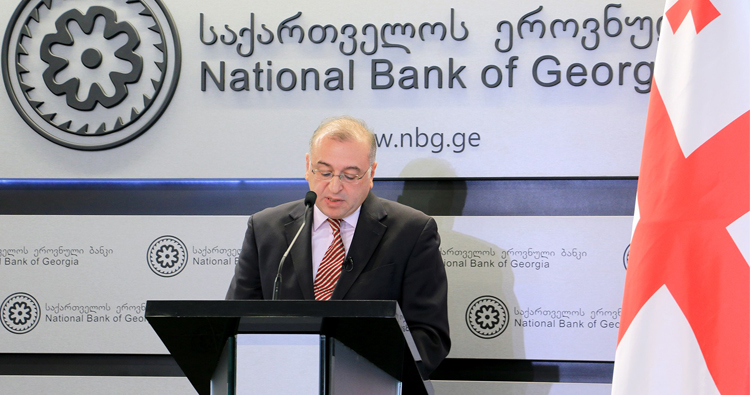National Bank of Georgia keeps refinancing rate unchanged at 8%

The next meeting of the Monetary Policy Committee will be held on December 9, 2020. Photo: NBG.
The National Bank of Georgia has decided to keep the refinancing rate unchanged at eight per cent.
The decision was made today by the Monetary Policy Committee of the bank.
Annual inflation keeps decreasing and it amounted to 3.8 per cent in September,” says the NBG, noting that based on the forecast the annual inflation will near targeted inflation by 2021.
The bank says that the decrease in inflation is caused by a decrease of weak aggregate demand, noting that external demand is quite significant.
Against the backdrop of coronavirus activation and the anticipated further extension of pandemic, the global economic recovery in 2021 is expected to be slower than previously forecasted, which will have downward impact on external demand,” says the NBG, noting that the Monetary Policy Committee also took into account the uncertainty associated with the acceleration of the virus spread and the increase in geopolitical risks.
According to the existing forecasts, other things equal, domestic demand will be the main driver of economic growth in 2021. In contrast, external demand remains significantly reduced,” says the NBG.
Based on the preliminary data revenues from international travelers in September declined by 95 percent annually, notes the NBG.
By steering interest rates, the NBG influences the level of inflation. Specifically, the change in short-term rates is transmitted to long-term rates, which, ultimately, affects the interest rates on loans.
When projected inflation is above the target inflation rate, the NBG raises the refinancing rate to combat a future surge in the general price level.
The next meeting of the Monetary Policy Committee will be held on December 9, 2020.
 Tweet
Tweet  Share
Share